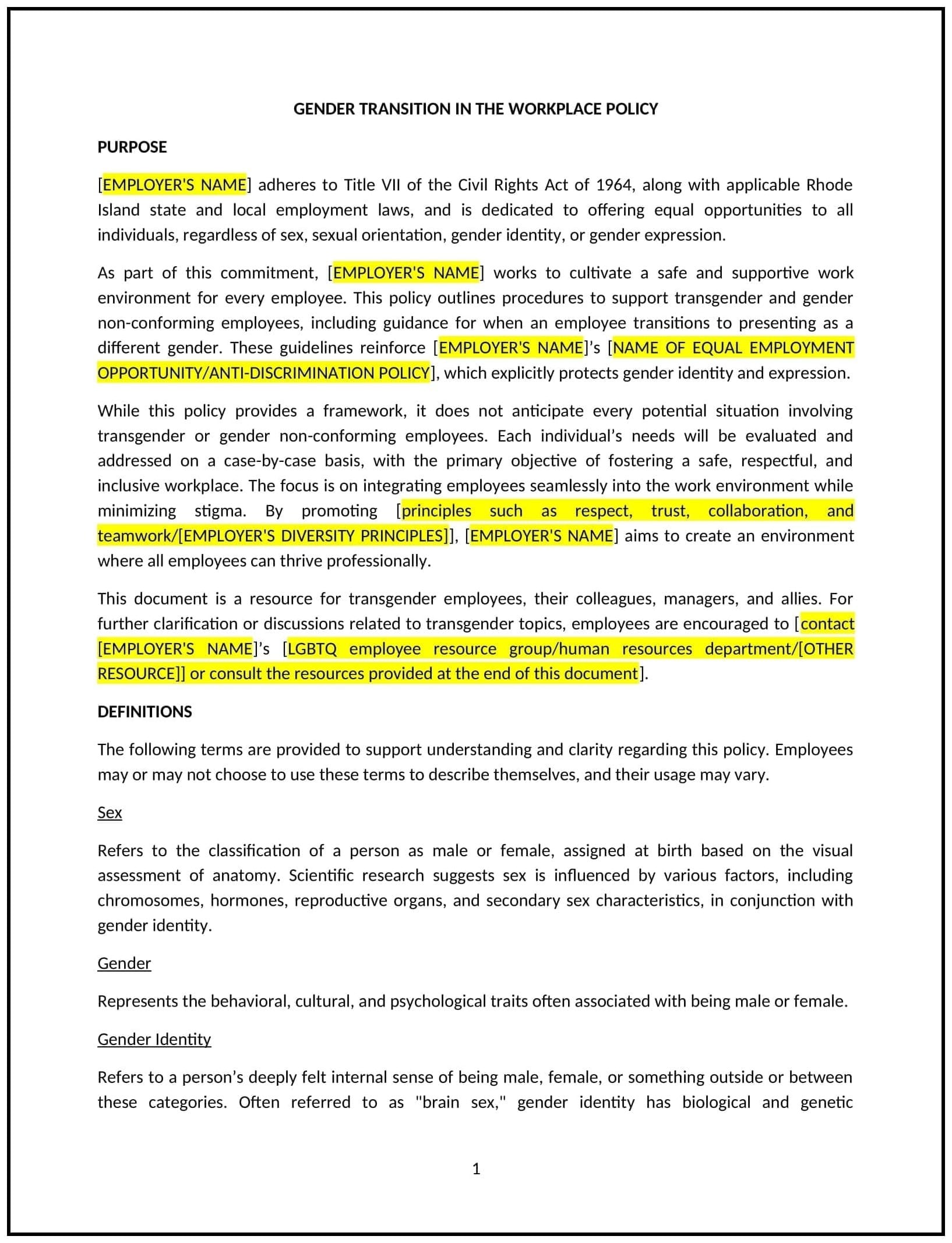Gender transition in the workplace policy (Rhode Island): Free template
Got contracts to review? While you're here for policies, let Cobrief make contract review effortless—start your free review now.

Customize this template for free
Gender transition in the workplace policy (Rhode Island)
This gender transition in the workplace policy is designed to help Rhode Island businesses support employees undergoing gender transition. It outlines procedures for ensuring a respectful and inclusive environment, including name and pronoun changes, restroom access, and confidentiality.
By adopting this policy, businesses can promote inclusivity, comply with anti-discrimination laws, and align with best practices for supporting transgender employees.
How to use this gender transition in the workplace policy (Rhode Island)
- Define support measures: Specify how the business will support employees, such as updating records and providing training.
- Address name and pronoun changes: Outline procedures for updating employee records and communicating changes to colleagues.
- Ensure restroom access: Provide guidelines for restroom use that respect the employee’s gender identity.
- Maintain confidentiality: Establish protocols for protecting the employee’s privacy during and after the transition.
- Train employees: Educate staff on the policy and the importance of inclusivity.
- Review and update: Assess the policy annually to ensure it aligns with evolving business needs and legal standards.
Benefits of using this gender transition in the workplace policy (Rhode Island)
This policy offers several advantages for Rhode Island businesses:
- Promotes inclusivity: Demonstrates a commitment to supporting transgender employees.
- Ensures compliance: Aligns with federal and state anti-discrimination laws, reducing legal risks.
- Enhances employee satisfaction: Shows employees that the business values diversity and inclusion.
- Builds trust: Fosters a respectful and supportive workplace culture.
- Aligns with best practices: Supports adherence to inclusivity and anti-discrimination standards.
Tips for using this gender transition in the workplace policy (Rhode Island)
- Communicate the policy: Share the policy with employees and include it in the employee handbook.
- Provide training: Educate managers and staff on supporting transgender employees and maintaining inclusivity.
- Monitor compliance: Regularly review workplace practices to ensure adherence to the policy.
- Address issues promptly: Take corrective action if discrimination or harassment is reported.
- Update regularly: Assess the policy annually to ensure it aligns with evolving business needs and legal standards.